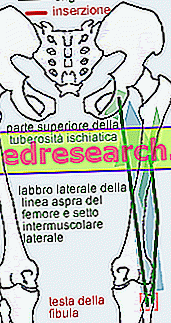Depression and neurotransmitters
Depression is a serious psychiatric condition that affects many people. It involves the mood, the mind and the body of the patients, who feel hopeless and feel a sense of desperation, of uselessness and incapacity.

The monoamines are synthesized within the presynaptic nerve termination, stored in vesicles and then released into the synaptic wall (the space present between the presynaptic and postsynaptic nerve termination) in response to certain stimuli.
Once released from the deposits, the monoamines interact with their receptors - both presynaptic and postsynaptic - in order to perform their biological activity.
In this way the transmission of the nerve impulse from one neuron to another is made possible.
After performing their function, monoamines bind to receptors responsible for their reuptake (SERT for serotonin reuptake and NET for noradrenaline reuptake) and return to the presynaptic nerve termination.
Serotonin (5-HT) is considered the major neurotransmitter involved in depressive disorders and alterations in its concentration have been associated with many mood disorders.
The selective serotonin reuptake inhibitors (or SSRIs) are able - as the name suggests - to inhibit the reuptake of serotonin within the presynaptic termination, favoring the increase of the 5-HT signal. This increase causes an improvement in the depressive pathology to occur.
History
The first antidepressants to be synthesized were TCA (tricyclic antidepressants). However, it was noted that these antidepressants - in addition to inhibiting monoamine reuptake - also blocked other body systems, causing a long list of side effects, some of which were very serious.
Since with the use of the first antidepressants it was evident that serotonin had a role in the etiology of depression, the purpose of pharmaceutical chemists was to identify and synthesize the ideal SSRI, with the aim of obtaining a highly selective drug for the Serotonin reuptake transporter and had little - or nothing - affinity towards neuroreceptors responsible for TCA side effects.

Zimeldina - Chemical Structure
The first success was obtained with the synthesis of zimeldina, a derivative of the tricyclic antidepressant amitriptyline. In fact, this molecule was able to selectively inhibit 5-HT reuptake, with minimal effect on noradrenaline reuptake; more importantly, zimeldina did not present the typical side effects of TCAs.
Therefore, zimeldina became the model for the development of future SSRIs.
Classification
SSRIs can be classified according to their chemical structure in the following way:
- Phenoxy phenylalkylamines, such as fluoxetine, paroxetine, citalopram and escitalopram;
- Phenylalkylamines, such as sertraline;
- Other types of SSRIs (such as, for example, fluvoxamine).
Action mechanism
The SSRIs inhibit the transporter responsible for the reuptake of serotonin (the SERT) and present minimal or absent affinity for transporting the norepinephrine reuptake.
Due to their high affinity for SERT, SSRIs inhibit the binding of serotonin to its transporter. This inhibition leads to a greater stay of 5-HT in the synaptic wall. In this way, serotonin is able to interact with its receptors - both presynaptic and postsynaptic - for a longer time. This increased receptor interaction leads to an increase in serotonergic transmission.
Furthermore, it appears that prolonged treatment with SSRIs leads to a reduction of serotonin binding sites on the SERT, thus causing a reduction in the functionality of the transporter itself, which is no longer able to bind - therefore to recap - large quantities of 5- HT.

Indications
For what it uses
SSRIs can be used both in the treatment of depression and in the treatment of other types of diseases.
The main therapeutic indications of this type of inhibitors include:
- Major depressive disorder;
- Bipolar depression;
- Atypical depression;
- Obsessive-compulsive disorders;
- Anxiety attacks;
- Panic attacks;
- Postpartum depression;
- dysthymia;
- Premenstrual syndrome;
- dysphoria;
- Bulimia nervosa (fluoxetine is used above all);
- Personality disorders;
- Obesity;
- Rheumatic pain and migraine;
- Alcoholism.
Interactions
Among the various drug interactions that can occur during SSRI therapy, the one that stands out most is perhaps the interaction with monoamine oxidase inhibitors (MAOIs). The association with these drugs, in fact, is to be avoided due to the high risk of occurrence of the serotonin syndrome .
Serotonin syndrome - also referred to as serotonin poisoning - is characterized by an excess of 5-HT activity in the central nervous system.
Poisoning can occur both in mild and moderate or severe form. Symptoms usually appear very quickly.
In the mild form, the symptoms that can manifest are:
- Tachycardia;
- Increased sweating;
- Headache;
- Myoclonia (short and involuntary contraction of a muscle or a group of muscles);
- Tremors;
- spasms;
- Chills;
- Accurate reflexes;
- Mydriasis (dilation of the pupils).
In the case of moderate poisoning may occur:
- Accentuation of intestinal sounds (borborigmas);
- Diarrhea;
- Hypertension;
- Temperature.
In the case of severe intoxication, on the other hand, there is a marked increase in heart rate, increase in blood pressure, rhabdomyolysis (rupture of skeletal muscle cells and their release into the bloodstream), convulsions and renal failure. Furthermore, the patient can enter a state of shock with body temperatures above 40 ° C.
SSRIs can also interfere with drugs whose metabolism occurs mainly in the liver. Therefore, caution should be exercised in the event of simultaneous administration.
Side effects
Although SSRIs have fewer side effects than tricyclic antidepressants, this does not mean they are not.
The main side effects induced by selective serotonin reabsorption inhibitors are:
- Nausea;
- Diarrhea;
- agitation;
- Anxiety;
- Insomnia;
- Sexual dysfunctions.
Sexual dysfunctions can occur in both male and female patients. These dysfunctions manifest themselves in the form of decreased libido, anorgasmia, delay or blockage of ejaculation (they are therefore used in the treatment of premature ejaculation) and / or difficulty in maintaining an erection.
From some studies it would seem that the sexual dysfunctions induced by the SSRIs are dose-dependent; in other words, they depend on the amount of drug administered. Sexual dysfunction could therefore be resolved simply by reducing the dosage. In patients where it is not possible to reduce the drug dosage, the alternative is to wait and reassess sexual activity after some time. Drug therapy may be useful to treat these symptoms, but the decision is up to the doctor who will decide what to do based on the patient's condition.
Furthermore, the doctor may also consider the start of an alternative antidepressant therapy based on drugs lacking in serotonergic activity.



